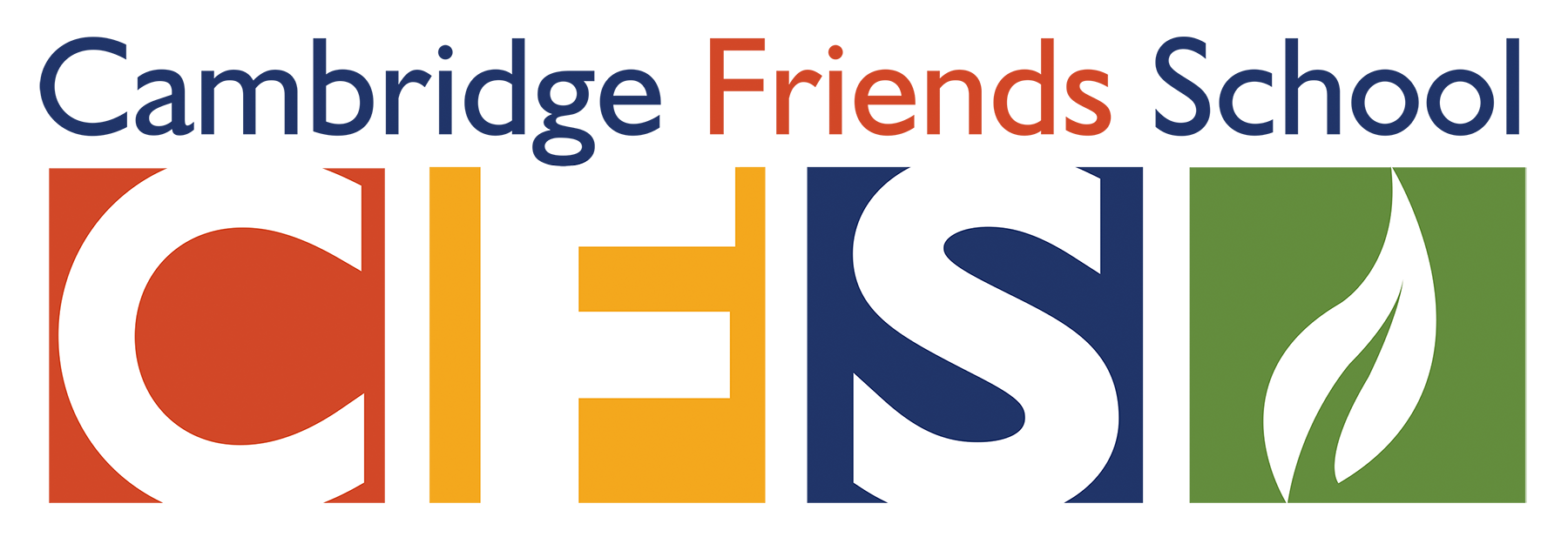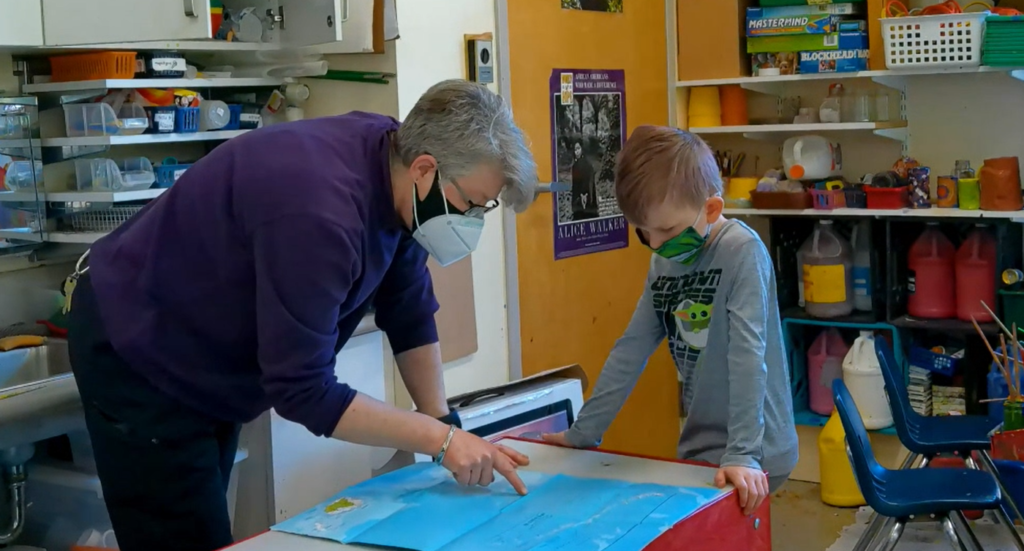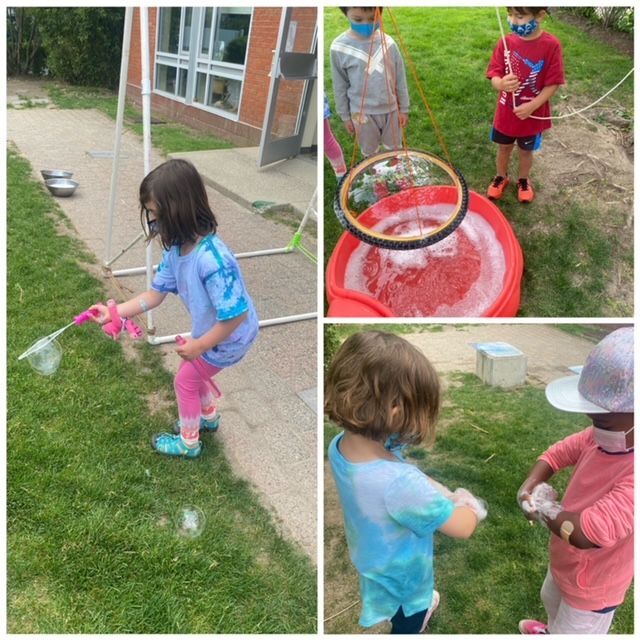Pre-K and Kindergarten Overview
Mixed-age classes
In a mixed- age classroom, our Pre-K and Kindergarten students spend some time learning together through play and experience, and some time learning separately at appropriate levels for their age. Pre-K students have mentors to look up to as they learn school-readiness skills like sitting attentively, classroom jobs, and school routines. Kindergarteners are asked to be leaders and mentors, setting a good example for their younger classmates.
There are different expectations for the Pre-Kindergarten and Kindergarten students. All students are challenged to function at their highest level of proficiency and to take the next steps in their developmental acquisition of skills. Each student is uniquely held in the light as they progress through the curriculum.
School Readiness Skills
In Pre-K and Kindergarten at Cambridge Friends School, students develop foundational skills in academic areas and begin to understand that they are members of a classroom, local, and global community. They develop understandings of and respect for different identities and cultures and are empowered to stand up for justice, equity, and their beliefs. The Quaker value of continually seeking truth creates the backbone for student’s deep analytical approach to asking interpersonal, academic, practical, and philosophical questions. This thoughtful approach is also applied to conflict resolution and learning in mathematics and literacy.
Different ways of learning
In the early childhood program, children have opportunities to learn in different ways, including measured and developmentally appropriate amounts of explicit instruction (in mathematics, literacy, and social studies), projects, and self-directed, teacher-supported activities and play. The classroom environment is a key element of the curriculum and is carefully planned and stocked by teachers with specific developmental goals in mind in response to children’s interests and needs. It’s design, offerings, and the organization of materials address the needs of students, inspire creativity and inquisitiveness, and scaffold the development of ideas and learning.
Intentional Pedagogy
Materials are chosen that are interesting, welcoming, and engaging. Spaces are designed for students to move their bodies, use large muscles and coordination, and accomplish fine motor challenges. There are swings, climbing walls, and gym mats that provide opportunities for students to develop gross motor skills and coordination, use energy, and develop ways to soothe themselves and self-regulate their physical and feelings. Spaces are created, materials provided, and experiences facilitated to foster children’s intellectual, physical, emotional and spiritual selves. Students take ownership of the classroom space by taking on weekly classroom jobs and acting as environmental stewards through multi-grade composting and recycling programs. Students’ artwork, signs and projects fill the classroom and change over time as interests and academic subject foci shift. Young children’s excitement in communicating their thinking is channeled into skill building activities (such as journal writing, storytelling or dictating, and note writing) and integrated into academic subjects.
Pre-Kindergarten
Pre-Kindergarten
In combined Pre-K and Kindergarten classrooms, our experiential program allows our youngest students to learn classroom routines and expand their curiosity.
Learn MoreKindergarten
Kindergarten
Kindergarten at Cambridge Friends School focuses on emerging literacy and math in a vibrant classroom designed to spark creativity and wonder.
Learn More

